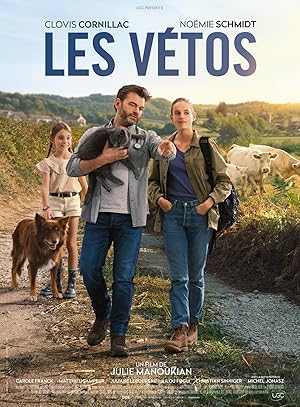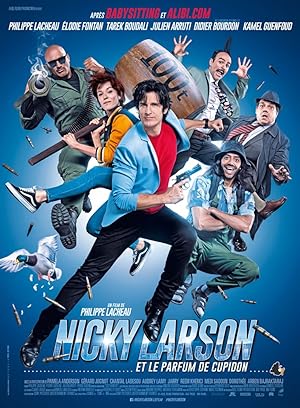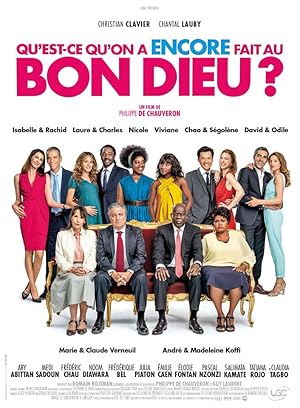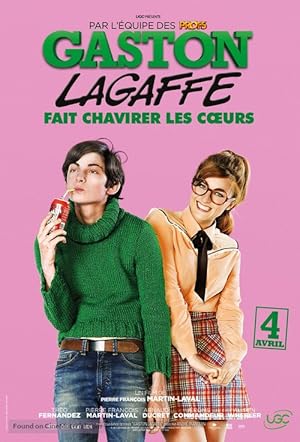I got interested in the films in this series, not because I particularly like it, but precisely because I never wanted to watch one. So, I'm not going to pretend to be able to write a detailed review of these films here, because I've never seen them. That said, I consider that this detail is of little importance in this context because I'm not here to discuss the artistic value of this film or the others in the same series. I can already hear the critics who say that I'll never be happy. Here's a film that presents a very diverse list of actors and you still complain. Well, to those I say: I'm not French for nothing.
This kind of cinema has never caught my interest, and I have often wondered who could really be captivated by such works. For me, it is more fiction, and I like my fictions embellished with special effects. However, given the success of this kind of film, it is important, in my opinion, to ask certain essential questions. I am convinced that cinema is supposed to relate events and stories that remain credible whatever the genre and yes even in science fiction we can have credible stories. In the case of this film in particular I never believed it. A borderline racist father who accepts interracial relationships in his family. It does not really match the reality of things in real life, no offense to the creators of this film.
But I'm off topic, what I can bring to this discussion is a critical mind. This analysis begins after some research. According to Wikipedia, this film was produced by several companies:
– The Films of the 24th
– The Films of the First
– TF1 Films Production
– Belga Productions
Among them, Les Films du 24 seems to play a leading role. So to go further, we will focus on this company. Since we have a database aimed at analyzing diversity in French films, we might as well use it to inform our analysis. My goal is to find out if this company has a vision that would allow cinema to evolve in the right direction, i.e. more diversity, and if so, if this approach is part of a global policy.
A central question We can reformulate the concern as follows in my opinion: Is their approach part of a perspective of societal change or are they simply seeking to exploit social issues to generate profits? (Mouahahah, we all already know the answer…..) But let's push to find out more. To answer, it is relevant to examine their filmography. Based on this list , I noted that the majority of films produced by Les Films du 24 between 2015 and 2020 appear in our database. This represents seven films.
It's not huge, but it's already representative, given that production companies release few films each year.
Genre: Comédie, DramePlot:
In the heart of Morvan, Nico, the last vet in the area, struggles to save his patients, his clinic, and his family. When Michel, his partner and mentor, announces his retirement, Nico knows that the hard part is yet to come. "Don't worry, I've found the next generation'' Except that ... The next generation is Alexandra, a 24-hour graduate, brilliant, misanthropic, and not at all willing to return to bury herself in the village of her childhood. Will Nico manage to make her stay?
Genre: Action, Comédie, Crime
Plot:
Nicky Larson, the best private investigator in the business, is called for a high-risk mission: to recover the perfume of Cupid, a perfume that would make irresistible the one who uses it.
Genre: Comédie
Plot:
After Laure's blissful wedding in Qu'est-ce qu'on a fait au Bon Dieu? (2014), the unconventional Verneuils' multicultural family faces yet another unforeseen crisis. Against the backdrop of ambitious business ideas in a France that is constantly changing, the ethnic sons-in-law--the Algerian, Rachid, the Jewish David, the Chinese Chao, and the Ivorian Charles--now plan to move abroad with their lovely wives, leaving doting parents Claude and Marie all alone. The Koffis are also in for a big surprise. Will the Verneuils take the situation lying down? Above all, will they ever learn to stop worrying and trust their children?
Genre: Comédie
Plot:
Gaston gets hired as an intern. With its wacky inventions he puts the daily life of his colleague's on stilts. Our brilliant hobbyist experience crazy adventures with a cat, a gull, a cow and the Flat Vid Phone.
Genre: Comédie, Drame
Plot:
Julien feels like a hostile presence behind him constantly. Alex, his son learns that Eva, a 17-year-old high school girl, forgot to let him know that he was going to be a father.
Plot:
Loïc Le Tallec has never been a very good father to Yann, who has just died in a road accident. Collapsed, he tries to find the identity of the person who had his son's heart transplanted. He discovers that it is about Hugo, 20 years old
Genre: Comédie
Plot:
French seniors enroll in summer camp.
Observed trends
If we believe this quick and very incomplete analysis, it seems that the series "What did we do to God?" constitutes an exception in a catalogue of rather conformist films (in the line of French films, let's say)
We can see that said that in the 7 works presented these works which contain a relatively large number of people from diverse backgrounds rarely address deep social issues, which suggests a more commercial than societal approach. As for more serious films, it seems even rarer to find real and diverse representation. I don't know if it's normal, but I would like to see people from diverse backgrounds evolve in these types of productions as well. In my opinion and despite the impression of the media not all people from diverse backgrounds live only in the suburbs.
So, we can assume that Les Films du 24 prefers to stick to secure productions, where the number 11 (in reference to the percentage of diversity of the characters represented) seems to be a tacit limit that they hardly exceed. Obviously the list of films only represents a few years and it would be interesting to study further this trend that we have noticed but if we take the 2 films that exceed 20% of diversity in their main actors, this represents 28% of their films which would be representative of French diversity.
In short, their approach seems oriented towards productions aimed at maximizing their audience while avoiding making too many commitments. Such a strategy may be effective on a commercial level, but it remains limited in its societal impact.
Même si nous faisons notre possible pour ne pas commettre d'erreurs, celles-ci sont toujours possibles, n'hésitez pas à demander une correction et nous ferons de notre mieux pour corriger le plus rapidement






